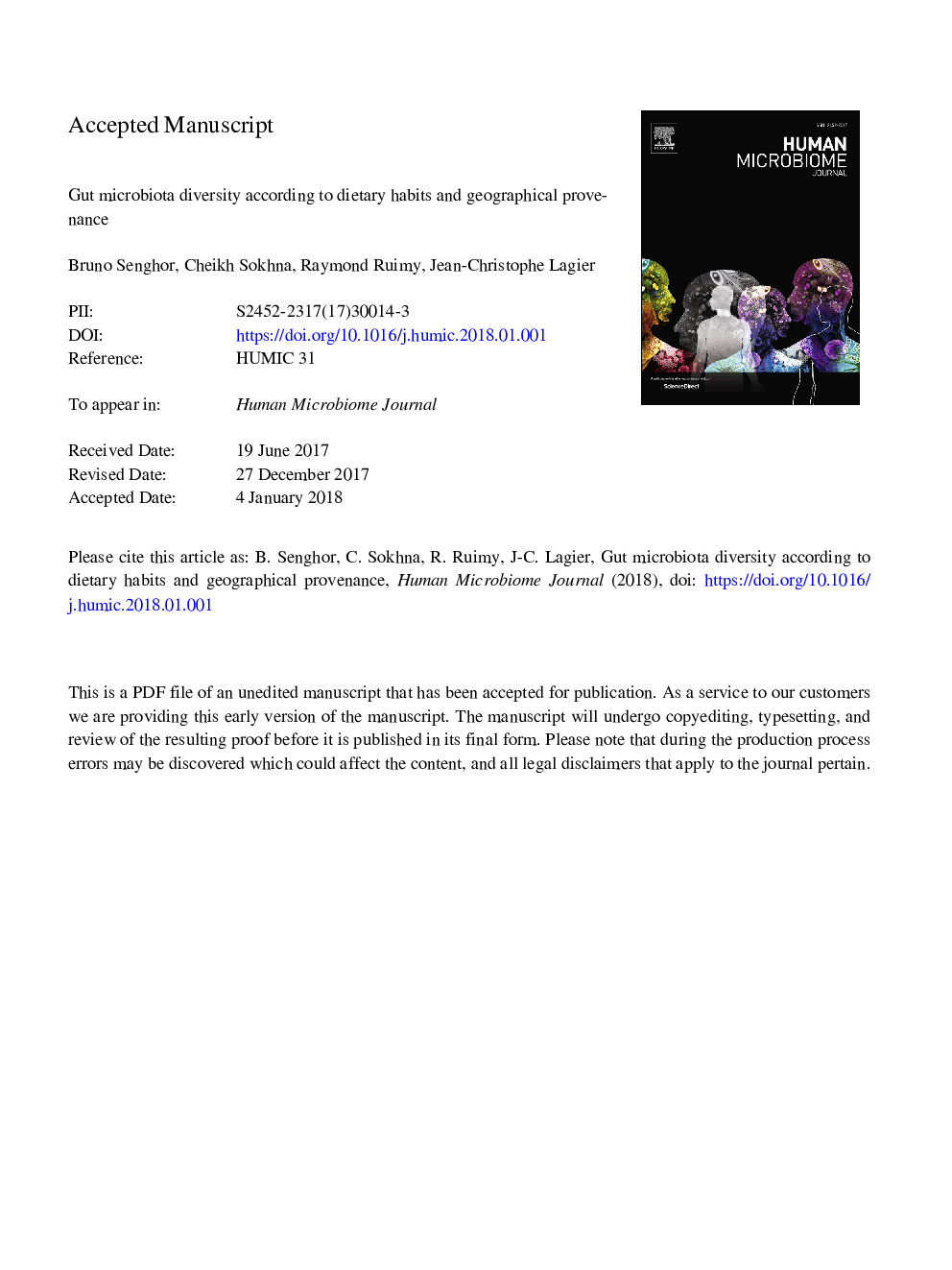| Article ID | Journal | Published Year | Pages | File Type |
|---|---|---|---|---|
| 8745610 | Human Microbiome Journal | 2018 | 33 Pages |
Abstract
The gut microbiota is an ecosystem including all bacterial species that permanently colonize the gastro intestinal tract and a large number of other microorganisms from the environment. These millions of microorganisms may be unbalanced by a number of external and internal factors. The aim of this review is to summarize recent findings on animal and human studies on the effect of dietary and geographical provenance on gut microbiota-composition. It includes results on the influence of dietary products, type of diet (e.g. vegetarian and omnivorous subgroups), and geographic areas, as well as differences between populations within the same area. In animal models, most results showed contradictory effects on modulation of the intestinal microbiota within the same phylum, while in human studies, dietary products, such as fat, are often reported as being associated with an increase in Bacteroidetes and Actinobacteria species and a decrease in those in the Firmicutes and Proteobacteria phylum. The results of different studies showed that the omnivorous group has a higher diversity of bacteria compared to vegetarians. Gut microbiota composition differs widely between different areas and between different ethnic groups within the same area. However, a higher diversity of bacteria species was encountered in the African population. The conclusions highlight that gut microbiota composition differs according to diet and eating habits which are closely correlated to geographical location suggesting therefore, the need for more in-depth research, looking at ethnic diversity and eating habits.
Related Topics
Life Sciences
Immunology and Microbiology
Microbiology
Authors
Bruno Senghor, Cheikh Sokhna, Raymond Ruimy, Jean-Christophe Lagier,
